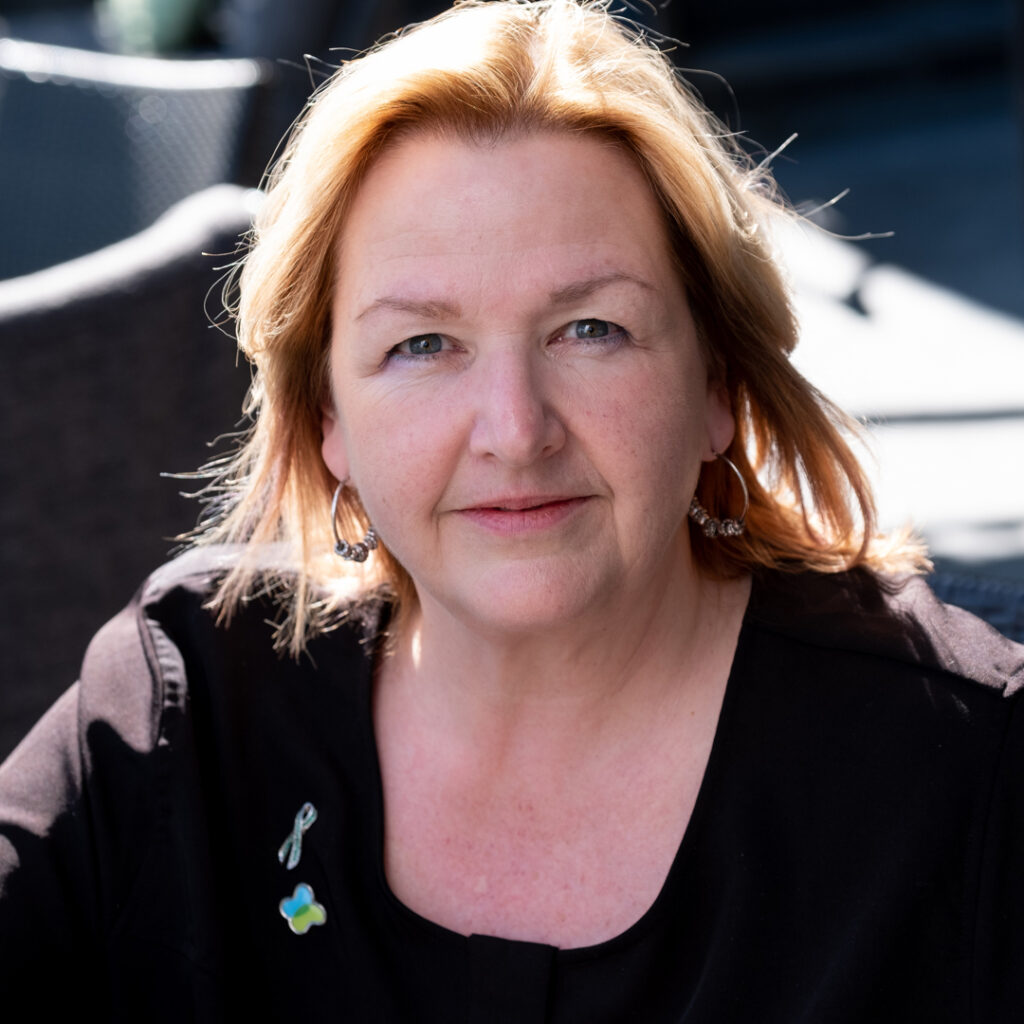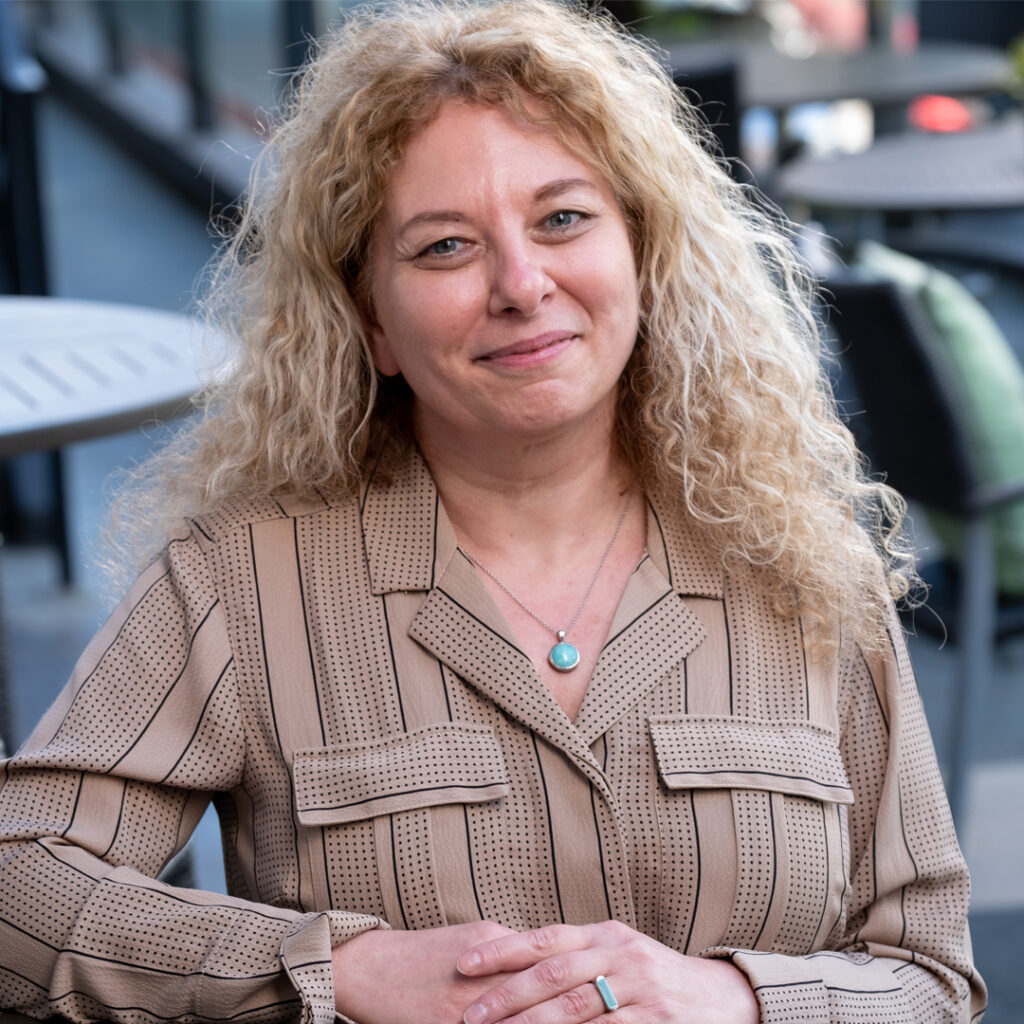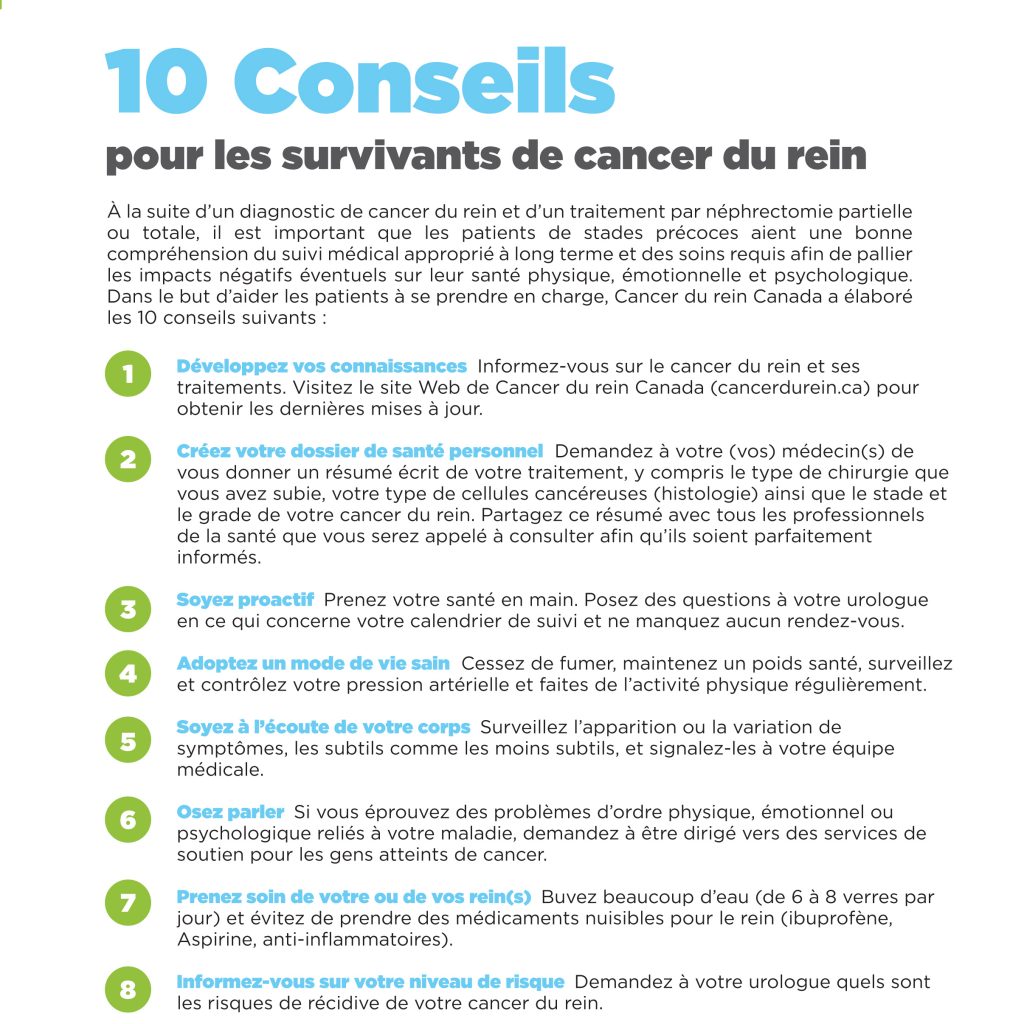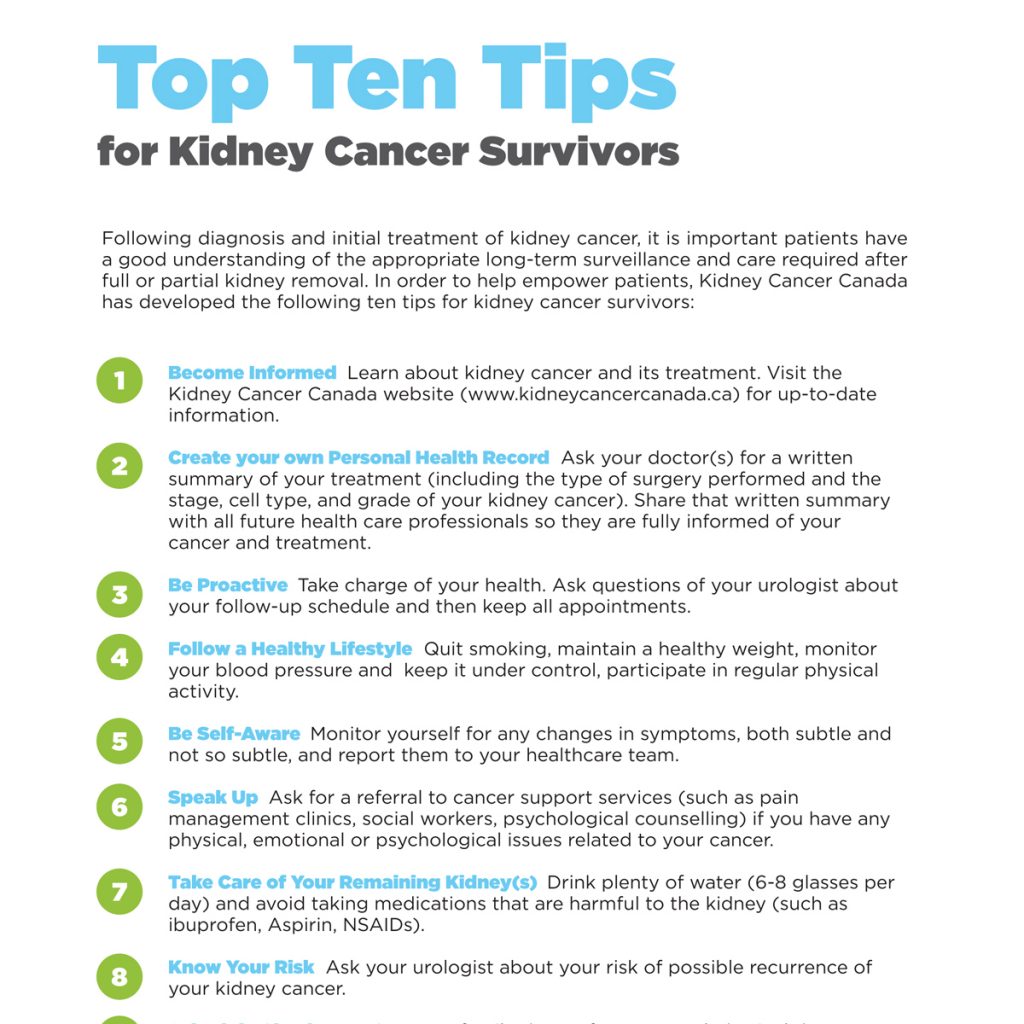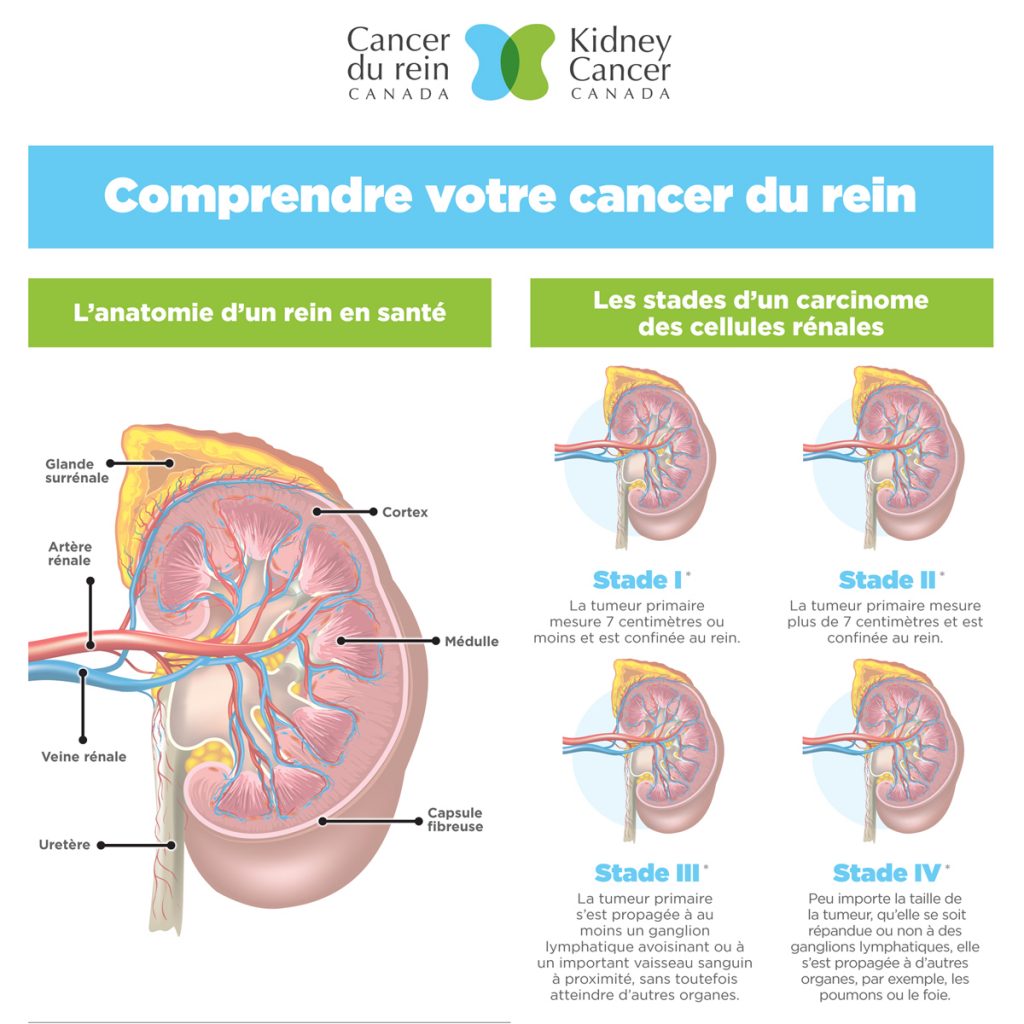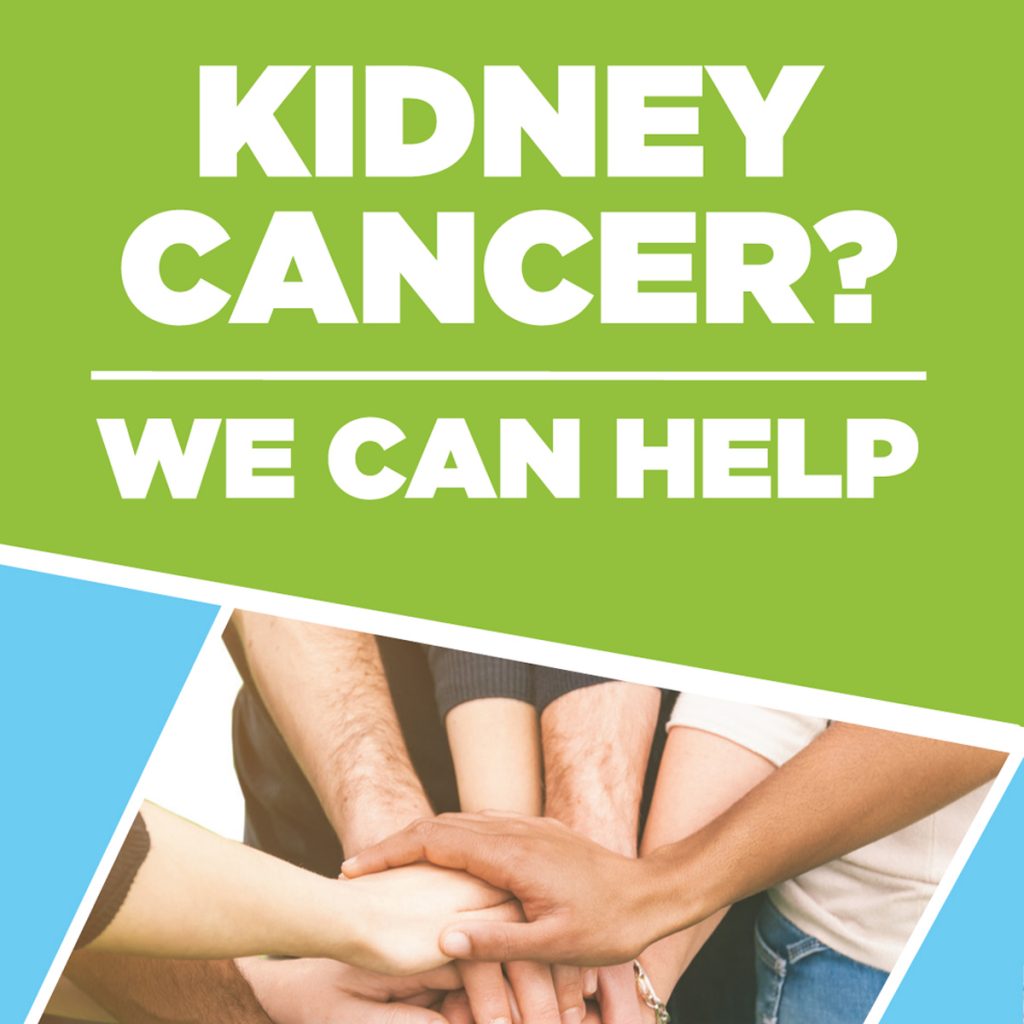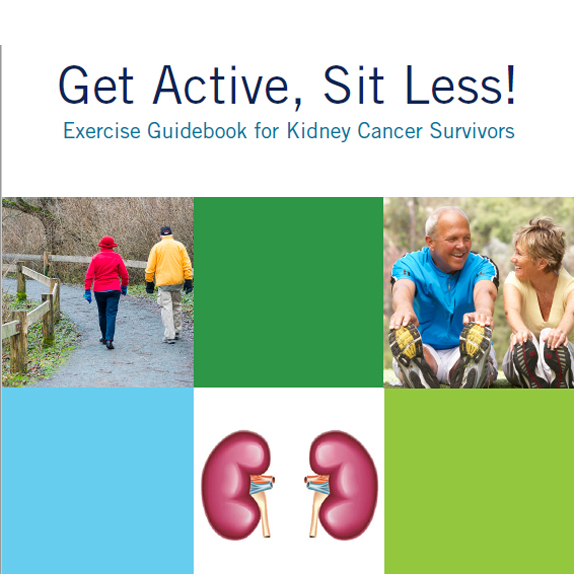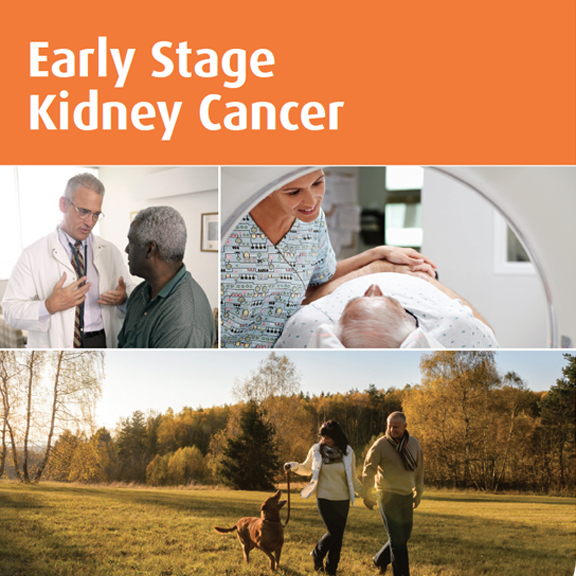
Highlights from the ESMO Virtual Congress 2021
Source : International Kidney Cancer Coalition (IKCC)
The European Society of Medical Oncology (ESMO) congress was held virtually from 16-21 September 2021. The presentations are available to view on the ESMO website if you have previously logged in to the site. The International Kidney Cancer Coalition (IKCC) attended the virtual scientific programme to keep abreast of the latest advances in the care and treatment of people with kidney cancer.
Please note: The following summary was prepared by patient advocates for the benefit of patient organisations around the world who focus on kidney cancer. While this summary has been medically reviewed, the information contained herein is based upon public data shared at this meeting and is not intended to be exhaustive or act as medical advice. Patients should speak to their doctor about their own care and treatment.
Alternative treatment schedules for TKIs and immunotherapy
TKI treatment breaks for advanced/metastatic kidney cancer (STAR)
There is increasing interest in using treatment breaks to reduce side effects without affecting results. This phase 3 trial (STAR) was designed to investigate how taking a break in tyrosine kinase inhibitor (TKI) treatment affected the number of side effects and patient survival when compared to standard first-line TKI treatment for people with advanced renal cell carcinoma (RCC). Overall survival time and economic evaluation (quality adjusted life years, QALY) were the primary outcomes from this study. The trial recruited 920 patients with RCC that had spread to other parts of the body (advanced or metastatic). Patients took either sunitinib or pazopanib and were randomly allocated to 1 of 2 treatment groups.
Patients in group 1 were treated according to the standard schedule with either sunitinib (one tablet daily for 4 weeks, and 2 weeks off treatment) or pazopanib (a tablet every day without a break). They continued treatment for as long as they were benefiting from the treatment, or until they could not tolerate the side effects.
Patients in treatment group 2 took sunitinib or pazopanib in the standard way for 24 weeks. They then had a break in treatment. During this planned treatment break they were monitored with regular computer tomography (CT) scans. When the cancer started growing again, treatment was re-started. These patients had at least another 24 weeks of treatment with sunitinib or pazopanib, and if their cancer remained under control, they could have another break in treatment. They continued treatment for as long as they were benefiting, or until they could not tolerate the side effects.
More than half of all patients (53%) continued in the trial after 6 months. The average treatment break was 87 days. There was no substantial difference between overall survival time in patients who had standard treatment and patients who had a treatment break, although the data were not quite strong enough to confidently claim there was no difference at all. The difference was about 1 month in favour of standard treatment. At two years, treatment breaks resulted in a cost saving of around £6,954 for each patient. Secondary endpoints, such as time to treatment failure (time to death, disease progression, or new systemic treatment), and time to when the treatment stopped working and the cancer started growing again (progression-free survival) were all in favour of the group of patients who had a break in treatment.
Overall survival time was not different between the two treatment groups. Having a break in treatment resulted in fewer side effects, was shown to be acceptable to patients and clinicians, and had significant cost savings compared to standard treatment.
Alternative treatment schedule for ipilimumab plus nivolumab in first-line treatment of advanced RCC (PRISM)
The use of the immune checkpoint inhibitors ipilimumab plus nivolumab is a standard treatment for previously untreated patients (first-line treatment) with intermediate/poor-risk RCC that has spread (advanced or metastatic RCC). This combination can cause serious or life-threatening side effects which are mainly caused by ipilimumab. The aim of this phase 2 trial (PRISM) was to see if changing the treatment schedule for this combination can make this treatment more tolerable without affecting patient survival.
Patients with untreated advanced RCC were randomly put into two treatment groups in a ratio of 2:1: Group 1 was a modified schedule of ipilimumab given every 12 weeks for four doses combined with nivolumab infusions every 2 weeks between combination doses. Group 2 was the standard treatment schedule of ipilimumab every 3 weeks for 4 doses followed by a standard dose of nivolumab every 2 weeks. Patients were treated until their disease progressed or they could not tolerate the side effects.
There were 192 patients in the study, more than two thirds of which (69%) had intermediate/poor-risk disease. Serious or life-threatening side effects were significantly lower in the patients on the modified ipilimumab schedule compared to the standard schedule (32.8% versus 53.1%, respectively). Patients in the modified treatment group experience less inflammation of the bowel (colitis), joint pain, liver problems, inflammation of the lungs (pneumonitis) and inflammation of the pituitary gland (hypophysitis). There appeared to be no differences in the survival outcomes for patients on the different treatment schedules, although this might need to be checked in future clinical trials to be sure.
This study showed that giving ipilimumab every 12 weeks instead of every 3 weeks, in combination with nivolumab, significantly reduced the number of serious or life-threatening side effects to treatment. The change in treatment schedule did not seem to affect the survival outcomes of the patients but the trial is too small to draw firm conclusions from this.
Probability of survival at various timepoints in the nivolumab-ipilimumab study CheckMate-214
The use of two medicines together (combination therapies) is a standard treatment for previously untreated patients with RCC that has spread (advanced or metastatic RCC). The CheckMate-214 study showed that a combination of the immune checkpoint inhibitors nivolumab plus ipilimumab helped patients with intermediate or poor risk RCC live longer than those patients who were on the TKI sunitinib alone and reduced the risk of death by 32%.
This poster presented long-term data from the CheckMate-214 trial, with a focus on the probability of survival at various timepoints after the start of treatment (for example, if you have already lived 3 years, what is the likelihood you will live another 2 years?). Patients were followed for an average of 67.7 months.
The CheckMate-214 study compared the nivolumab/ipilimumab combination to sunitinib in 1096 patients with advanced clear cell RCC.
After a minimum 5 years of follow-up, the nivolumab/ipilimumab combination continued to provide survival benefits compared to sunitinib in patients with advanced clear cell RCC. The study also showed that for patients still alive after 3 years the probability of remaining alive 2 years later was 81% for all patients, 79% for intermediate or poor risk patients and 85% for favourable risk patients. The probability of the cancer not returning within the next 2 years was between 85-90% for all risk groups. For patients who were still responding to nivolumab/ipilimumab treatment at 3 years, the probability of continuing to respond for an additional 2 years was again between 85-90% for all patients.
No new side effects were detected during the longer follow-up.
The long-term follow-up in this study showed that nivolumab/ipilimumab provided a better chance of survival compared with sunitinib, and increased the probability of long-term survival for patients still alive and responding to treatment after 3 years.
Pembrolizumab as an adjuvant therapy
Nephrectomy is the standard of care for RCC; however, the cancer can come back (recurrence) after nephrectomy. Adjuvant therapy is medication that is given after surgery to try to prevent the cancer from coming back.
In the past, vascular endothelial growth factor (VEGF) inhibitors and cytokines have been tested as adjuvant therapies for RCC, but the benefit for patients has been inconsistent.
The phase 3 KEYNOTE-564 trial looked at the use of pembrolizumab as an adjuvant therapy for patients with clear cell RCC after nephrectomy. Patients were randomly allocated to two separate groups with similar features and given either pembrolizumab or placebo for about one year. During and after treatment patients were monitored for return of their cancer.
Pembrolizumab significantly reduced the relative risk of the cancer returning by about one third (32%). After 2 years, 68.1% of patients on placebo remained disease-free. This means that 31.9% of the patients on placebo were at risk of their cancer returning after surgery. In the patients taking pembrolizumab, 77.3% remained disease-free, therefore the risk of recurrence was reduced by about one third (32%) in those treated with adjuvant pembrolizumab. More follow up is required to make any definitive conclusions about overall survival.
Patients who had been treated with at least one dose of pembrolizumab or placebo filled in questionnaires about their quality of life before the first infusion and at several times during their treatment, as well as when treatment was stopped, 30 days after the last dose of treatment, and annually thereafter until recurrence of the cancer or the start of new treatment.
Of the 496 patients on pembrolizumab and 498 patients on placebo, more than 90% completed the baseline quality of life questionnaires and more the 60% completed them at 1 year.
There was only a minor deterioration of quality of life for patients treated with pembrolizumab compared to placebo, which the researchers did not consider statistically significant. Importantly, quality of life remained stable over time. Patients reported that pembrolizumab was tolerable from a patient perspective.
Pembrolizumab is currently approved by several health authorities around the world for use in combination with axitinib as a first medication for patients with advanced RCC. Together with the survival data from the KEYNOTE-564 trial, these results suggest that quality-of-life does not substantially suffer if pembrolizumab is taken for up to a year after surgery.
Monotherapies for the treatment of advanced RCC
Pembrolizumab monotherapy as first-line treatment (KEYNOTE-427)
KEYNOTE-427 is a phase 2 study to investigate the effectiveness of pembrolizumab as a first medication for people with advanced clear cell (cohort A) and non-clear cell (cohort B) RCC.
This poster presentation updated efficacy and safety results after a minimum of 41 months (nearly three and a half years) of follow-up in people with clear cell RCC (cohort A). Patients were treated with pembrolizumab every 3 weeks for up to 35 doses, or until the cancer got worse, or the patient could not tolerate the side effects.
There were 110 patients in the study, most of whom had intermediate or poor risk RCC (61.8%). The average duration of treatment was 8.5 months, and the study continues. The data for this presentation were taken after an average of 47 months from patients entering the study.
More than a third of patients (36.4%) responded to treatment with pembrolizumab and their cancer got smaller. The average duration of this response was 19 months, and it was estimated that in 43.5% of these patients the response lasted for at least 2 years. Overall, more than two thirds (69%) had a reduction in the total number of tumours, and 19.1% had a reduction of 80% or more. Patients with intermediate or poor risk disease seem to respond better to treatment than patients with favourable disease (39.7% versus 31%, respectively).
The average time to when the pembrolizumab stopped working and the cancer started growing again (progression-free survival) was 7.1 months and average overall survival time was 40.7 months. Nearly 20% of patients had progression-free survival of at least 30 months and nearly two thirds (62.6%) had an overall survival time of 30 months. Both progression-free survival and overall survival time were better in patients with favourable risk disease than those with intermediate or poor risk disease.
Real world study of cabozantinib in patients with advanced RCC
Cabozantinib is a tyrosine kinase inhibitor approved in Europe for use in adults with advanced RCC of intermediate or poor risk. It can be used in patients who have received prior VEGF-targeted therapy, or who have not received any medicine for their cancer. This poster presents interim data from the ongoing CASSIOPE trial on the real-world use of cabozantinib in patients with advanced RCC who have received prior VEGF-targeted therapy and/or nivolumab. The planned interim analysis was conducted when 50% of patients had completed 3 or more months of follow-up.
The study included 337 patients treated with cabozantinib following prior VEGF-therapy (mostly sunitinib or pazopanib) or nivolumab (nearly half of all patients had received nivolumab as a first or second medicine). Most patients (nearly 90%) had advanced clear cell RCC.
During the first 3 months of follow-up nearly 40% of the 58 patients who had been treated with nivolumab followed by cabozantinib had a partial response to treatment and 45% had stable disease. Unfortunately, in 12% of patients their cancer got worse. Most patients (79%) had to modify their dose of cabozantinib during the interim follow-up, either by reducing the dose, stopping treatment with cabozantinib for a while, or stopping treatment altogether. More than 90% of patients reported at least one side effect to treatment, which were manageable. There were no deaths related to the treatment.
The interim analysis of this study suggests that real world use of cabozantinib is tolerable and may be effective in some patients previously treated with VEGF-targeted therapy and/or nivolumab.
Promising treatments for rarer kidney cancers
There were two interesting studies presented at ESMO looking at treatments for non-clear cell forms of kidney cancer this year. Non-clear cell RCC is about 20-25% of all RCC diagnoses and usually has worse survival outcomes than clear cell RCC. Both cabozantinib and immune checkpoint inhibitors have been shown to help patients with non-clear cell RCC.
Pembrolizumab for non-clear cell RCC (KEYNOTE-427)
KEYNOTE-427 is a phase 2 study that looked at the treatment of people with clear cell (cohort A) and non-clear cell (cohort B) RCC with pembrolizumab as their first medicine. This poster presentation updated efficacy and safety results after nearly three years of follow-up in people with non-clear cell RCC (cohort B).
Pembrolizumab was given every 3 weeks for up to 35 doses, or until the cancer got worse, or the patient could not tolerate the side effects.
There were 165 patients with non-clear cell RCC in the study, most of whom had papillary RCC (71.5%). Some had chromophobe RCC (12.7%) and 15.8% were unclassified. The average duration of treatment was nearly 7 months, a third of patients had received more than 1 year of treatment and 15% had completed all 35 doses of pembrolizumab.
A quarter of patients had a response to treatment with pembrolizumab and their cancer got smaller. The average duration of this response was 29 months. The average time to when the pembrolizumab stopped working and the cancer started growing again (progression-free survival) was 4.2 months and average overall survival time was 29.9 months. Most patients (59.4%) had a reduction in the total number of tumours and 16.4% had a reduction of 80% or more.
Response rates differed between histological subtypes. Patients with papillary (response rate 28.8%) and unclassified RCC (response rate 30.8%) seem to derive more benefit compared to patients with chromophobe RCC (response rate 9.5%). Median progression free survival and overall survival time was longer for patients with papillary RCC (5.5 and 31 months), compared to patients with chromophobe (3.9 and 23.5 months) and unclassified RCC (2.8 and 17.6 months).
No new side effects to pembrolizumab were reported, and nearly 70% of patients reports at least one treatment-related side effect. Of these, 17% were serious or life-threatening and two patients died of treatment-related side effects (pneumonia and cardiac arrest).
After following patients for nearly 3 years, treatment of patients with pembrolizumab as a first-line medicine shows promising anti-cancer activity in patients with non-clear cell RCC. In the histological subgroup of non-clear cell RCC, pembrolizumab appears to be particularly effective in patients with papillary RCC.
Cabozantinib for collecting duct RCC (BONSAI)
Metastatic collecting duct carcinoma is one of the most aggressive forms of RCC, which is poorly researched and understood. There is an unmet need for an effective treatment for these patients, and very few clinical trials allow these patients to take part.
This single centre, phase 2 trial tested cabozantinib in untreated patients with collecting duct carcinoma that had spread (metastatic). The study looked at survival outcomes and side effects to cabozantinib. The study also tried to identify DNA mutations that defined this subtype of RCC.
Twenty-five patients were enrolled in the study, of whom 23 were treated with cabozantinib. Most patients were male with an average age of 66. The most common sites of spread were the lymph nodes, lung, and liver. Patients were followed for an average of 8 months.
Thirty-five percent (35%) of patients responded to treatment and their cancer got smaller. There was one complete response to treatment and 7 partial responses. The average time to when the treatment stopped working and the cancer started growing again (progression-free survival) was 6 months.
All patients reported at least one mild to moderate side effect, the most common being fatigue, low thyroid gland activity (hypothyroidism), sore mouth, low appetite, hand-foot syndrome, high blood pressure and diarrhoea. Five patients reported serious side effects (2 blood clots, 2 high blood pressure, 1 fatigue), and there were no life-threatening side effects or deaths related to treatment. The cabozantinib dose had to be reduced in 17% of patients.
DNA sequencing did not reveal a link between the number of tumour mutations and response to cabozantinib. However, patients who responded well to treatment with more than 6 months progression-free survival had a high number of mutations affecting the breakdown of certain proteins in the tumour cells (deubiquitination), cell-cell communication, and a growth factor in the tumour cells. These clues may point to how this type of tumour grows and could lead to new ways of treatment.
The study shows moderate effectiveness and acceptable tolerability of cabozantinib in patients with collecting duct carcinoma.
Belzutifan (MK-6482) plus cabozantinib for advanced clear cell RCC
Kidney cancers frequently have mutations in the von Hippel-Lindau (VHL) gene, resulting in high levels of a protein called hypoxia-inducible factor, or HIF-2α. This results in several changes in the cancer cells and their surrounding environment that favour tumour growth. The novel hypoxia-inducible factor 2α (HIF-2α) inhibitor, belzutifan (MK-6482), blocks the action of HIF-2α. This presentation updated the results from an ongoing small phase 2 study, where the safety and efficacy of belzutifan in combination with cabozantinib was assessed in clear cell RCC patients who had been previously treated with immunotherapy (cohort 2) or who were untreated (cohort 1).
Overall, there were 52 patients in cohort 2, and the average time to when the data for this interim analysis was taken was 9 months. Just over half of the patients (54%) had been treated with one type of immunotherapy medication, while the remainder (46%) had previously been treated with two lines of immunotherapy. Cancer shrinkage (overall response rate) was 22%, which included 9 partial responses. The disease was controlled in 90% of patients (either a complete response, partial response, or stable disease). Progression-free survival was 16.8 months and 81% of patients survived at least one year.
Nearly all patients (98%) had a treatment-related side effect, although most (92%) were mild or moderate. The most common severe side effects were: High blood pressure (hypertension), low blood iron levels (anaemia), and feeling tired (fatigue). There were no life-threatening side effects or deaths related to treatment. Only 6 patients (12%) stopped treatment due to side effects from belzutifan and 8 patients (15%) stopped treatment due to side effects from cabozantinib.
In conclusion, belzutifan showed promising anti-cancer activity when given with cabozantinib in patients with metastatic clear cell RCC that had been previously treated. More mature follow-up data will be needed to gain detailed insights into the efficacy of belzutifan and define its place in the treatment pathway for RCC.
Immunotherapy versus sunitinib as a first-line treatment for favourable risk advanced RCC
While around 80% to 90% of people survive for at least 5 years with early stage RCC (stage I or II), only 12% survive for 5 years or more with RCC that has spread (metastatic disease). Treatment of advanced RCC is challenging. Previous studies have shown that immunotherapies improve the survival outcomes for these patients.
This presentation reports the results of an analysis of all the patients from several different clinical trials together (a meta-analysis) looking at the results of immunotherapy compared to sunitinib as a first-line medicine in patients with favourable risk advanced RCC.
A total of six randomised controlled trials with a total of 5,121 patients were assessed. The studies included different immunotherapy combination treatments. All six trials reported a survival advantage of immunotherapy over sunitinib for all risk groups combined (favourable, intermediate, or high-risk disease). However, there was no difference in survival between patients with favourable risk disease when immunotherapy was compared to sunitinib. Side effects were consistent with those previously reported for these treatments.
Immunotherapy as a first-line medicine improves overall survival and progression-free survival for patients with advanced RCC. In patients with favourable risk advanced RCC, this improvement in survival compared to sunitinib is not confirmed yet. Trials with more patients and longer follow-up are needed to look at this group of patients in more detail.
Sarcomatoid and/or rhabdoid RCC treated with immune checkpoint inhibitors after surgery
Cytoreductive nephrectomy is the surgical removal of the tumour to reduce the number of cancer cells (tumour burden), reduce the symptoms and immunosuppression caused by the tumour, and prevent complications. Recent studies have questioned the role of cytoreductive nephrectomy for patients with RCC that has spread (metastatic RCC).
Metastatic sarcomatoid/rhabdoid clear cell RCC is an aggressive type of RCC that responds well to treatment with immunotherapy (immune checkpoint inhibitors). However, the role of cytoreductive nephrectomy for these types of RCC has not been investigated before. This poster presentation looks at the survival outcomes in patients with metastatic sarcomatoid/rhabdoid RCC treated with cytoreductive nephrectomy followed by immune checkpoint inhibitors.
The records of patients with metastatic sarcomatoid/rhabdoid RCC at one large cancer centre in America were reviewed. Ninety-one (91) of these patients were treated with an immune checkpoint inhibitor. Most patients (79%) had more than one site of cancer spread and nearly 60% had intermediate risk disease. Three quarters of patients were given an immune checkpoint inhibitor as their first medicine, mostly the nivolumab plus ipilimumab combination or an immune checkpoint (PD-1) inhibitor on its own. Patients who had a delayed or an upfront cytoreductive nephrectomy had longer overall survival time on immune checkpoint inhibitor treatment than those without a nephrectomy (29 months compared to 14 months, respectively).
This review suggests that cytoreductive nephrectomy might improve survival for patients with sarcomatoid/rhabdoid RCC taking immune checkpoint inhibitors and can be considered in selected patients. Due to the retrospective character of this study, results must be interpreted carefully.
ACKNOWLEDGEMENTS
Editors:
Professor James Larkin (UK)
Dr Andreas Schmitt (UK)
Medical Reviewers:
Dr Rachel Giles (NL)
Dr Michael Jewett (CA)
Dr Eric Jonasch (USA)
Medical Writer:
Dr Sharon Deveson Kell (UK)




